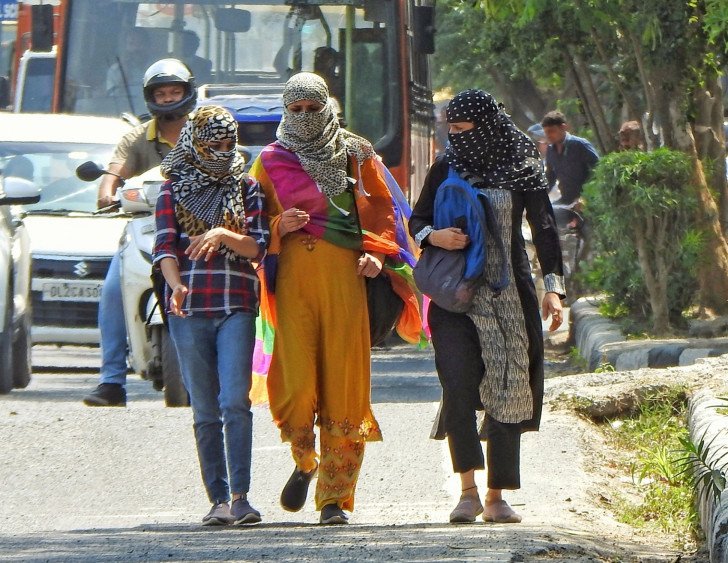Health
Heat can trigger mental health issues: KGMU experts

A lot, if one believes the doctors at the King George's Medical University (KGMU).
According to medical experts, there has been about 50 per cent increase in cases of psychosis and bipolar disorders in major government hospitals and institutes due to rise in temperatures in the past two weeks.
The patients, experts said, are those who are already suffering from psychological issues, and extreme heat or cold makes them vulnerable to such disorders.
However, there is nothing to panic about because incidence of such cases is 50 in 10 lakh population and can be prevented by taking precautions.
Doctors said at KGMU, the number of outpatient department (OPD) cases has risen from 20-25 to 30-35 daily, while at Balrampur Hospital, such cases have increased from 45 to 75 on a daily basis.
Faculty at KGMU psychiatry department Prof Bandana Gupta said that patients with psychosis may experience hallucinations, delusions, or confused thoughts, which can occur during manic or depressive episodes.
Similarly, bipolar disorder can involve both mania and depression.
Regarding the connection between temperature and mental disorders, Prof Gupta said, "Humans have a biological clock primarily controlled by the pituitary gland in the brain. Exposure to heat can disturb this clock, affecting the hormones secreted by the pituitary and pineal gland, thus triggering psychosis and bipolar disorders."
Prof Gupta advised attendants of patients with a family history of stress, anxiety and depression to be cautious during hot summers. She underlined the importance of taking necessary precautions to avoid excessive heat, such as staying indoors, drinking enough water and avoiding synthetic clothes.
Prof Gupta mentioned specific symptoms that attendants should watch out for in their patients.
These include excessive happiness, hopefulness and excitement, as well as sudden and severe changes in mood.
Attendants should also be alert for hallucinations, delusions, or confused thoughts. If any of these symptoms are observed, immediate consultation with a medical professional is recommended.
Psychiatrist at Balrampur hospital, Dr Devashish Shukla said, "These conditions are often seen in patients in their 30s. However, people should not panic as they can be cured, but it is important to complete the full course of medication.



































